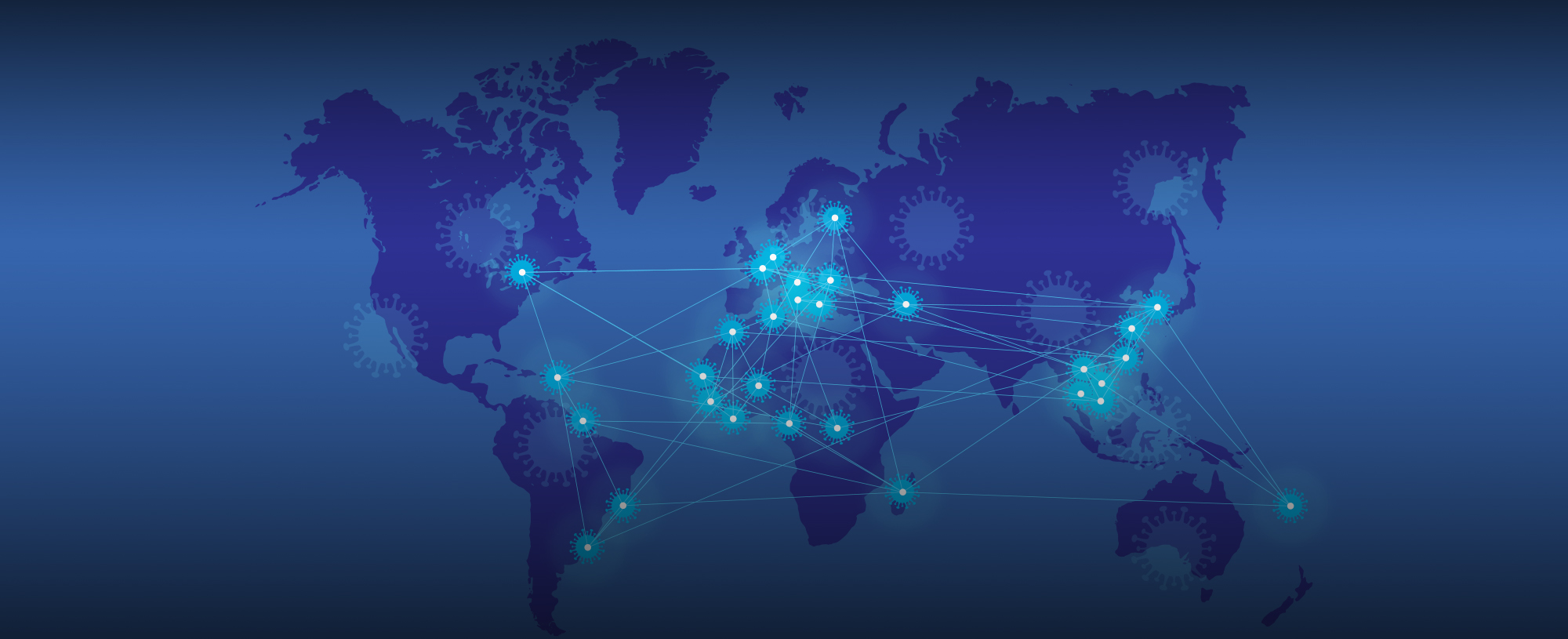A multisite collaborative research program of the Pasteur Network in response to Coronavirus in Africa
REPAIR : Recherche Pasteurienne Internationale en Réponse au Coronavirus en Afrique
The COVID19 pandemic hit Africa later than other continents and the first cases were not detected there until February 14th 2020, in Egypt. Since then, the virus has been circulating in almost all countries through local transmission. Nevertheless, when compared to the deadly wave in Europe and then in the Americas, the consequences in Africa, in terms of morbidity and lethality, have remained contained for the moment. The much-feared health disaster in this continent with limited resources has not occurred to date.
REPAIR is a regional cooperative project led by 10 members of the Pasteur Network, that aims at better understanding the dynamics of SARS-COV 2 diffusion in the African continent while creating an opportunity to develop common methods and responses for the continent.
REPAIR is a consortium of 10 Pasteur Network members established in Africa representing 4 ecosystemic and populational regions of the continent :
- Maghreb region: IP de Tunis, IP d’Algérie and IP du Maroc.
- West Africa and Sahel: IP de Dakar, IP de Côte d’Ivoire, IP de Guinea and CERMES in Niger.
- Central Africa: IP de Bangui, Pasteur Center in Cameroon.
- Southern Africa: IP de Madagascar.
These members were actively engaged in the fight against COVID 19 in their respective countries, as they were the first to develop locally the key diagnostic tool for detecting the emerging pandemic virus , the test, and disseminate it to other health structures when it was necessary to ramp up testing.
Such geographical and ethno-cultural diversity covered by the research consortium is of great interest if we consider the hypotheses linked to the role played by environmental, climatic, human and cultural factors in the spread of the virus and its impact on humans.
Considering that “testing” is the cornerstone of the national policies to control infection through the rapid and large-scale detection of infected and contagious people, REPAIR will mobilize the whole network present in Africa to characterize the performance of diagnostic tools best adapted to African realities.
Hence, the project will develop a multidisciplinary approach mobilizing African virologists, immunologists, epidemiologists and modelers as well as Social Sciences specialists. This last component is innovative in the context of Pasteurian actions as it will shed light in the countries surveyed, on the perception by the exposed populations of the importance of the “testing” as key to a coherent prevention policy. Technological developments conducted by certain members of the network in Africa will be supported to accompany them up to the validation stage so that they can also be used by their network partners, internationally.
REPAIR is deployed around 5 specific axes organised into 5 working packages (WP) :
- WP1 will conduct a multicentric evaluation of the performance of SARS-Cov2 diagnostic tests in the African context.
- WP2 will characterize the molecular epidemiology of SARS-COV2 in Africa and the evolutionary dynamics of the virus in time and space.
- WP3 will analyse quantitatively and qualitatively the anti-SARS-COV2 antibody responses in infected people and will conduct population-based sero-epidemiological surveys of COVID 19 in Africa.
- WP4 will create a model of the spread of COVID 19 in Africa.
- WP5 will develop an approach of Social Sciences and Health, applied to COVID 19 in Africa.
All scientists involved in the development of the REPAIR program are indebted for the collaborative spirit that will enable mutualisation of the expected results. This will hopefully generate an accurate picture of the epidemiology of COVID 19 on the African continent in the diversity of its geography, its ecosystems and its peoples. It will also prepare them for the next steps in the fight against the pandemic, including the introduction of the anti-SARS-COV 2 vaccination.
The Centre Pasteur du Cameroon, in collaboration with the Institut Pasteur de Dakar, published a first REPAIR article on Cameroonian COVID 19 sequences.
For more information, please contact us.
Last webpage update: March 2021.
